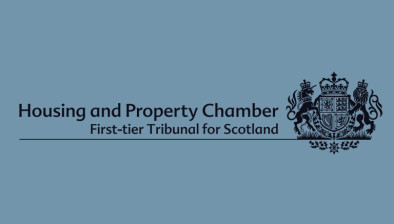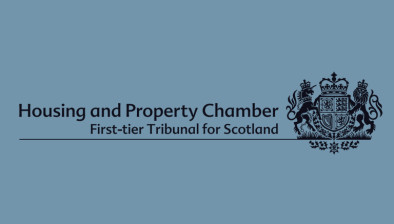Upper Tribunal orders rehearing in case of property factor that obtained overly expensive premiums for building insurance

A Glasgow flat owner who claimed the factor for her building had failed to obtain the best possible insurance rate has succeeded in appeal before the Upper Tribunal for Scotland.
Corrine Sinclair argued that the First-tier Tribunal for Scotland had erred in finding the respondent, Speirs Gumley Property Management Ltd, not to be in breach of the Property Factors’ Code of Conduct. Another application by another property owner directed against the same respondent was withdrawn after permission to appeal was granted.
The appeal was heard by Sheriff Frances McCartney. The appellant represented herself, with Friel, solicitor, appearing for the respondents.
High premiums
The respondents were the factors for a building in St Andrews Square, Glasgow. Over a period of six years they arranged, via a broker, the communal buildings insurance, the premium for which was split between the flats and formed a large part of the factoring fees. In 2017, the appellant raised with the respondents an issue concerning this cost, which was around £400 per flat per annum.
After receiving no response from the respondents, another homeowner independently sought comparable quotes from insurers in March 2018. It was conceded by the respondents that the premiums previously paid were higher than they ought to have been, and they sought agreement from the broker that future policies could be obtained at a discounted rate for the next three years.
The appellant argued that this was not appropriate compensation and sought a determination from the FtT that the respondents were in breach of section 5 of the Property Factors Code of Conduct for failing to negotiate the best rate it could. The Tribunal found that no breach had occurred and the respondents had used reasonable endeavours to achieve a reasonable insurance rate for the property.
It was submitted by the appellant that the FtT’s reasoning did not adequately explain its finding that there was no breach of the Code, or alternatively that it should have concluded that the respondent was in breach based on the steps it had taken regarding the insurance premiums. The respondent argued that the factors were not responsible for the actions of the third-party brokers, and negotiating better insurance rates were beyond the scope of the Code.
Difficult to follow
In her decision, Sheriff McCartney said of the standard of reasoning required: “It is trite law that a tribunal must give adequate reasons for its decision. Whilst the standard of adequacy of reasons will vary according to the decision in question, reasons are required to allow each party to ‘be left in no doubt why they have won or lost’ but also ‘that a requirement to give reasons concentrates the mind; if it is fulfilled, the resulting decision is much more likely to be soundly based on the evidence than if it is not’.”
On whether the FtT had provided that in this case, she said: “[The FtT’s] reasons are difficult to follow. Firstly, it is not clear why negotiating a reduction in premiums is connected to either the factor’s obligations to provide information on the policy (section 5.2) or information on any commission paid (section 5.3). It is not clear if the FtT thought there was no obligation in the Code to provide historic records. It is not clear what records the FtT found had been provided.”
She continued: “The FtT rejects the Appellant’s complaint, simply saying the Respondent “provided information explaining the process by which it arranged insurance together with insurance particulars.” No findings are made as to the date of providing such documentation or what documentation was provided.”
Sheriff McCartney said of any potential breach of the Code: “There is insufficient information before me to determine whether there is in fact a breach of section 5 of the Code. The FtT’s decision does not contain findings or a statement of facts. I consider further evidence would require to be lead, and that should be done before the FtT.”
She concluded: “I should say that the matter before the FtT was factually complex. A large volume of documents was before it, not all of which appear to have been relevant to the issues that the FtT needed to consider. There was possibly a lack of focus regarding what was relevant to present to the FtT. Neither party had the benefit of either party being legally qualified. Parties will wish to focus on the precise breaches of the Code which are being alleged, which will assist in the swift resolution of matters.”
For these reasons, Sheriff McCartney set aside the decision of FtT and ordered a new hearing to take place before a differently constituted Tribunal.














